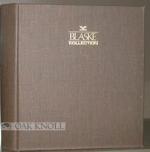|
This section contains 354 words (approx. 2 pages at 300 words per page) |
Dictionary of Literary Biography on Edmund Bolton
Edmund Bolton's The Cities Advocate (1629) is often incorrectly attributed to John Philipot. Bolton may have written the sonnet "To the Excellent and most accomplish'd Ladie, Lucie Countesse of Bedford" prefixed to Michael Drayton's Mortimeriados (1596). According to the Dictionary of National Biography, Bolton prepared Vindiciæ Britannicæ, or London righted by rescues and Recoveries of antiquities of Britain in general, & of London in particular, against unwarrantable prejudices, and historical antiquations amongst the learned; for the more honor, & perpetual just uses of the noble island & the city for press, but it was never printed. According to Anthony Wood, Bolton's Life of King Henry II was intended for insertion in John Speed's Historie of Great Britaine (1611) but was rejected for its too favorable account of Saint Thomas à Becket.
Bolton's poems appear in Englands Helicon (1600) with those of Philip Sidney, Edmund Spenser, Michael Drayton, Thomas Lodge, Nicholas Breton, George Peele, Henry Howard, Earl of Surrey, William Shakespeare, Edward Dyer, and Christopher Marlowe, among others. Bolton's five contributions are all pastorals: "Theorello: A Sheepheards Edillion," "A Palinode," "A Canzon Pastorall in honour of her Maiestie," "A Pastorall Ode to an honourable friend," and "The Sheepheard's Song: a Caroll or Himne for Christmas."
Bolton's birth is dated from his signature in a British Library manuscript (Harley MS. 6521), "Edmundus Maria Boltonus, aetatis 47, 1622." He may have been descended from the family of Basset and have been a distant relation of George Villiers, first Duke of Buckingham. He was raised and remained a Catholic. Bolton was for some years a free commoner at Trinity Hall, Cambridge, and then lived at the Inner Temple. He was married about 1606 and eventually had three sons. Bolton earned respect in his own time as a historian and antiquarian and became friends with William Camden; however, his religion thwarted any hopes of advancement throughout his life until, assessed as a recusant in 1628, he could not pay the six-pound fine because he was a prisoner in the Fleet. Nor could he pay in 1629 when his place of detention was the Marshalsea. He is last heard from in a letter to Henry, Lord Falkland, on 20 August 1633.
|
This section contains 354 words (approx. 2 pages at 300 words per page) |


